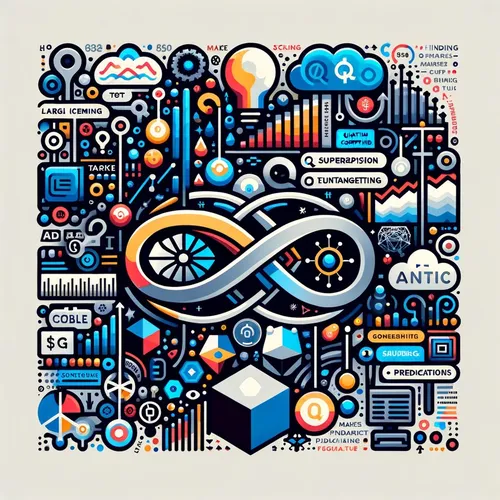Quantum Chip Revolution: SUPREME Consortium's Superconducting Leap
- Author
- Inception Point Ai
- Published
- Wed 09 Jul 2025
- Episode Link
- https://www.spreaker.com/episode/quantum-chip-revolution-supreme-consortium-s-superconducting-leap--66914750
This is your Quantum Market Watch podcast.
Today, I’m coming to you straight from the quantum frontier, where the news is as thrilling as a superpositioned bit. I’m Leo, your Learning Enhanced Operator, and if you caught the headlines this morning, you know the quantum chip industry just made a significant leap. The European Union officially selected the SUPREME Consortium to scale up the industrial production of superconducting quantum chips—a move that could fundamentally shift the entire technology sector’s trajectory.
Let’s dive in. For years, superconducting quantum chips have been the essential ingredient for many of the world’s most advanced quantum computers—think IBM's Condor chip, Google’s Sycamore. Yet, turning these research marvels into manufacturable, large-scale, fault-tolerant systems has been a bottleneck. Now, the SUPREME Consortium, drawing on expertise from VTT and other leading European labs, is setting up pilot production lines for fabricating 3D-integrated qubit assemblies and Josephson junctions—the heart of superconducting circuits. These aren’t just incremental advances; they’re aiming for robust, reproducible production flows that will enable European startups, universities, and giants to build quantum hardware without reinventing the fabrication wheel.
Picture this: quantum chip foundries humming like silicon fabs, but producing circuits so sensitive they must be shielded from the faintest electromagnetic whisper. Each chip, cooled close to absolute zero, hosts qubits that can entangle, decohere, and interfere in ways that defy classical logic. Standing in one of these labs, you hear the low whir of dilution refrigerators and see teams poring over process design kits—custom blueprints for quantum chips, soon to be accessible to SMEs and research groups across Europe.
What does this mean for the technology sector? First, it lays the groundwork for a genuine quantum supply chain, reducing Europe’s reliance on hardware imports and fostering a new ecosystem of quantum device innovation. It’s a leap reminiscent of the rise of TSMC in classical semiconductors—suddenly, every company with an idea for a quantum algorithm or sensor can prototype it, test it, and scale. Think about applications: quantum-enhanced AI for logistics, quantum sensors for drug discovery, quantum-secure communication for banking. These breakthroughs, once theoretical, now have a clear manufacturing path.
It’s a bold move—as dramatic as an entangled photon pair—and it underscores how quantum is transitioning from scientific curiosity to industrial reality. As Jason Nieh at Columbia Engineering said this week, the shift from exclusive, one-user-at-a-time quantum machines to cloud-style virtualization is transforming accessibility. The SUPREME Consortium’s industrialization of superconducting chips is the hardware twin to that cloud revolution—a new age where quantum resources are not just rare jewels, but workhorses for industry, research, and everyday technology.
If quantum can teach us anything, it’s that the future is rarely what it seems at first glance: uncertainty breeds possibility. Want to explore a specific topic or send your quantum quandaries my way? Email [email protected]. Don’t forget to subscribe to Quantum Market Watch, and remember—this has been a Quiet Please Production. For more, check out quietplease.ai.
Stay curious, and I’ll see you in the probability cloud.
For more http://www.quietplease.ai
Get the best deals https://amzn.to/3ODvOta
This content was created in partnership and with the help of Artificial Intelligence AI
